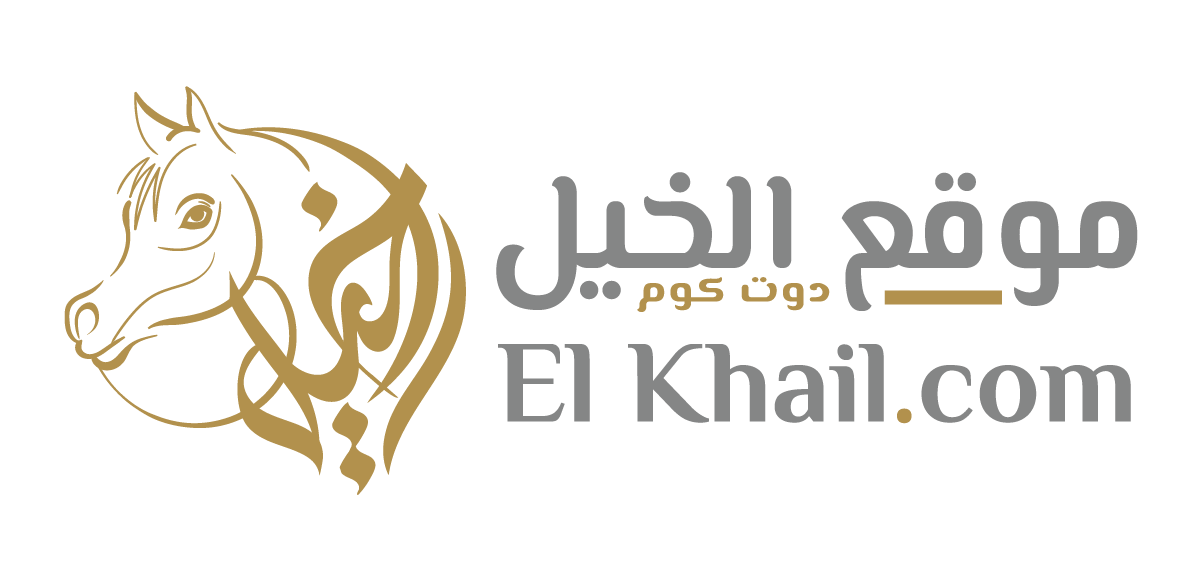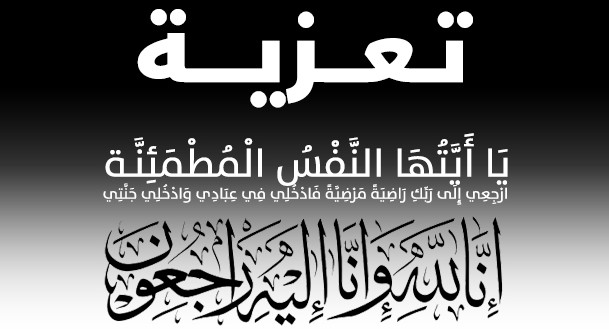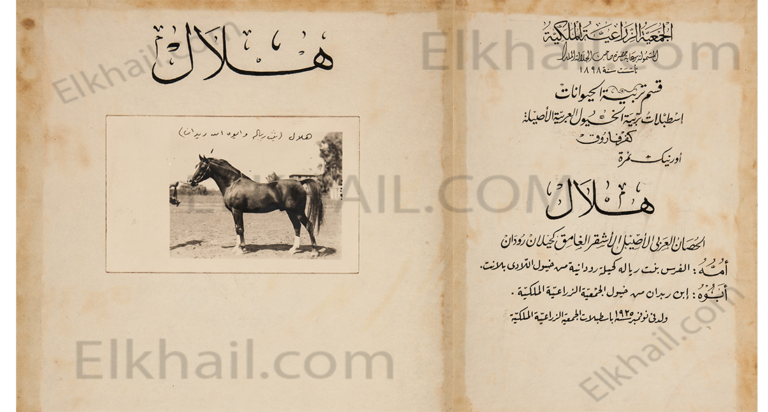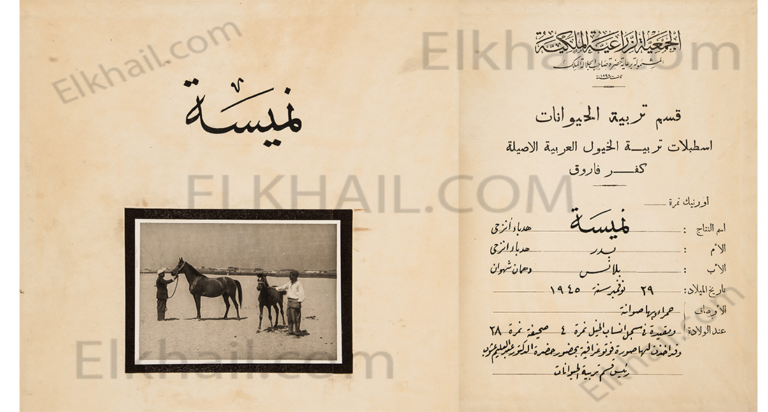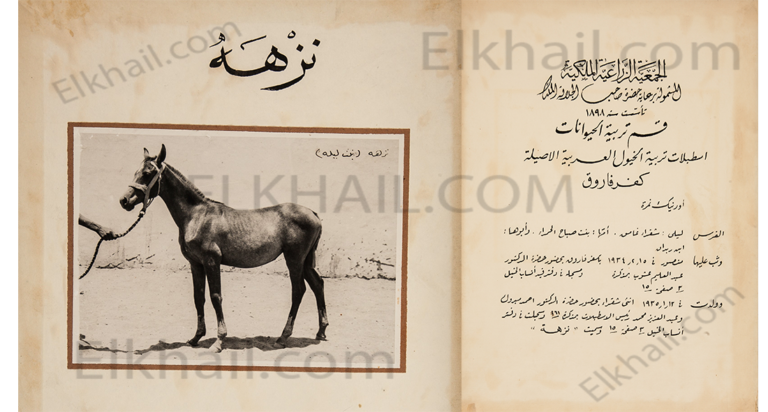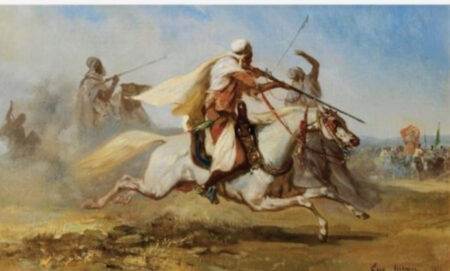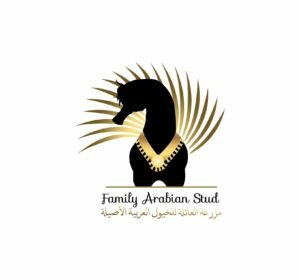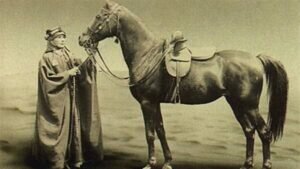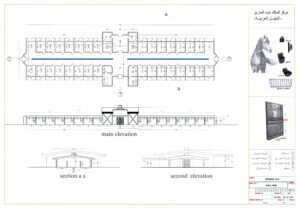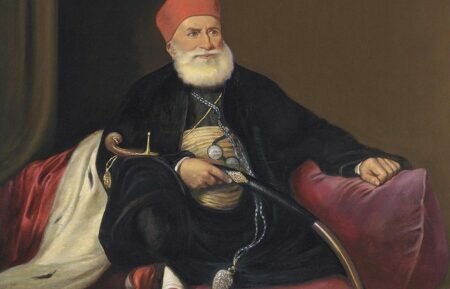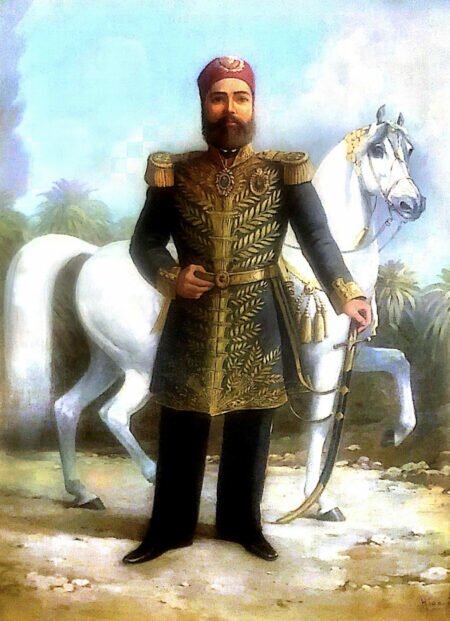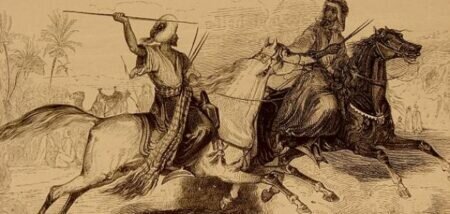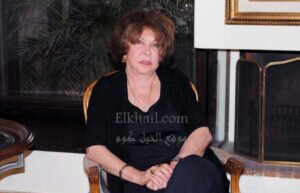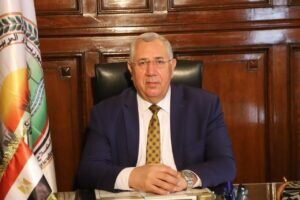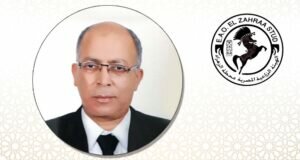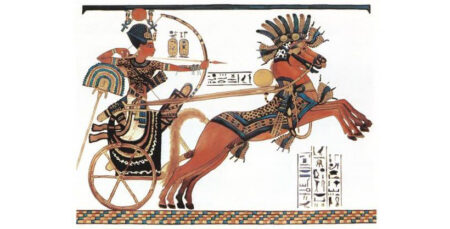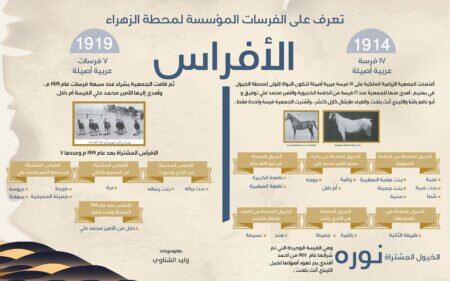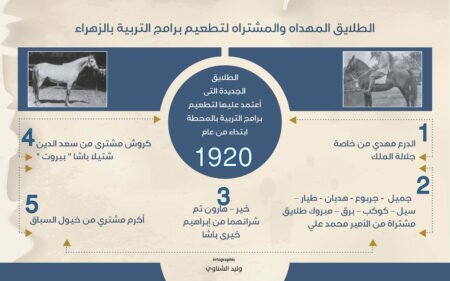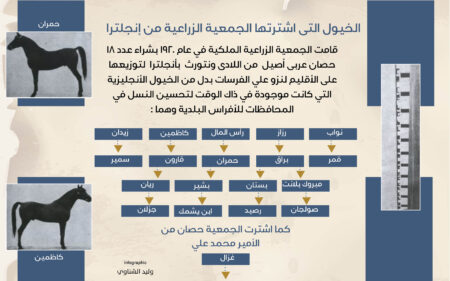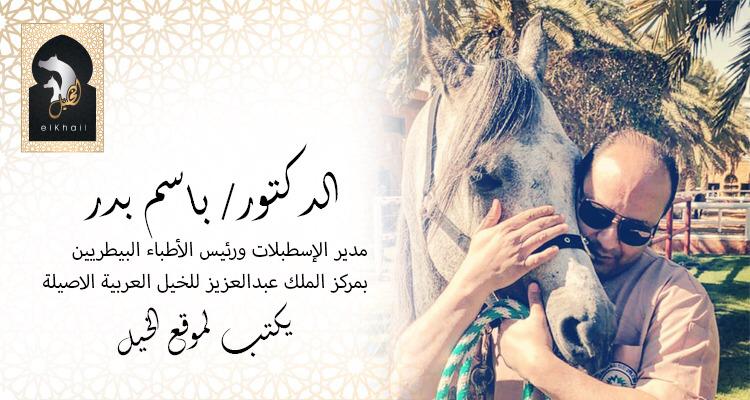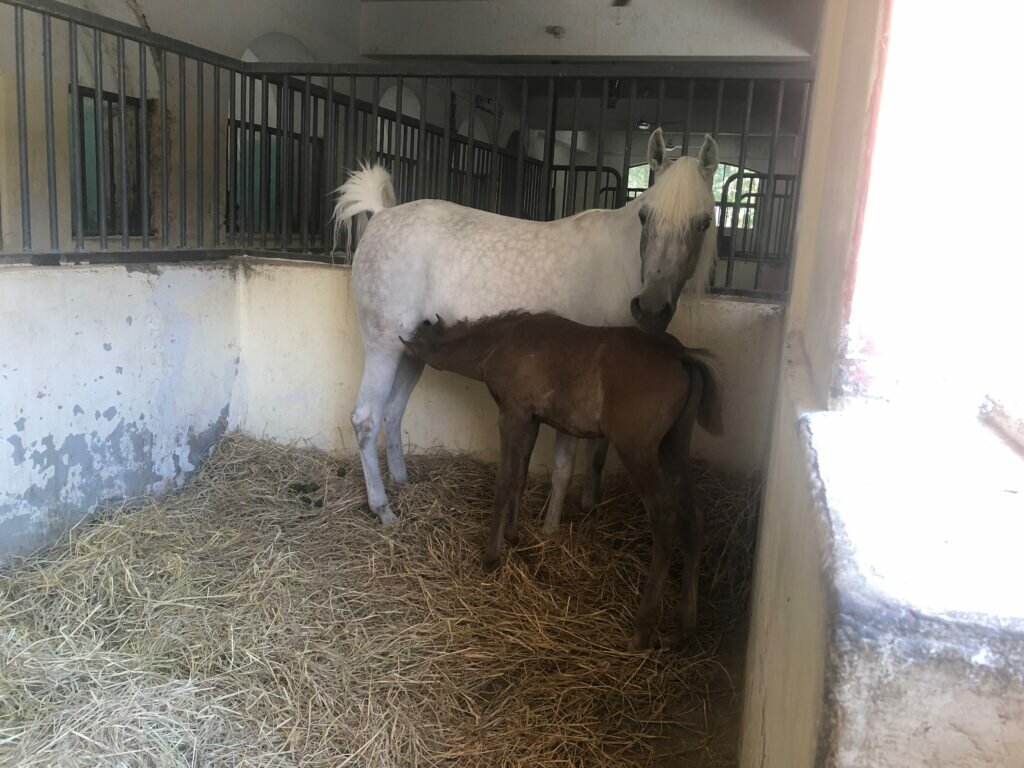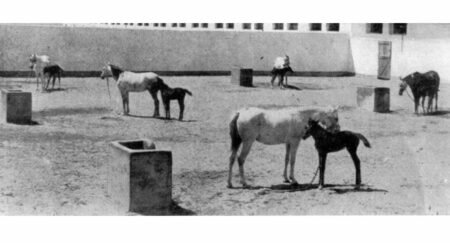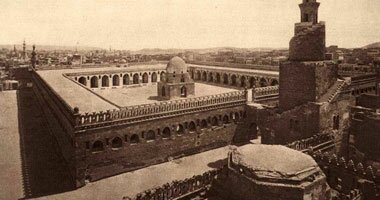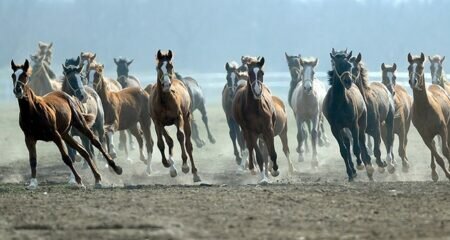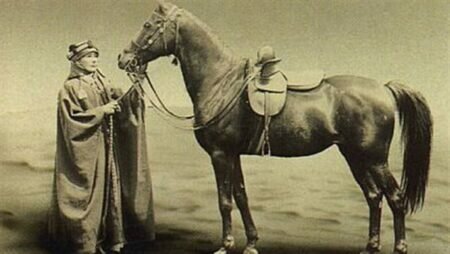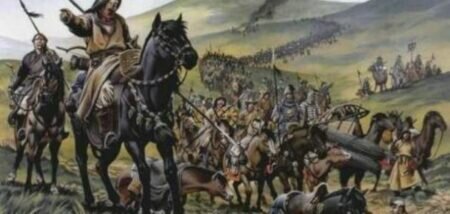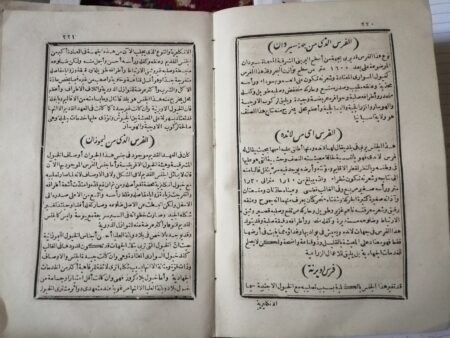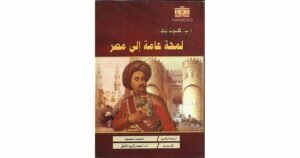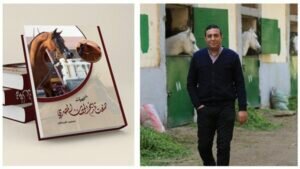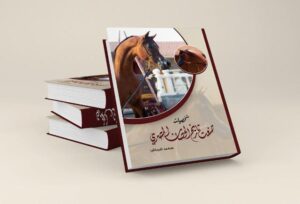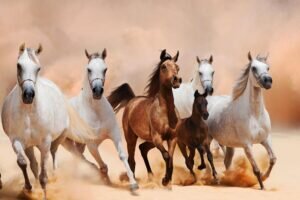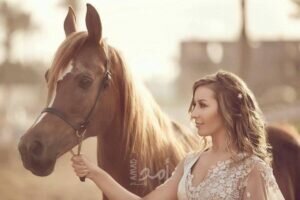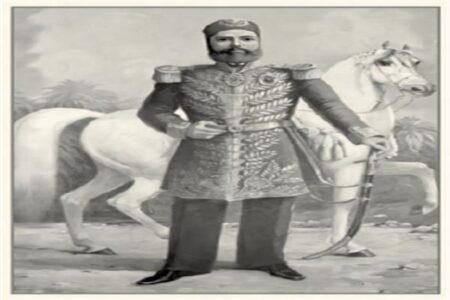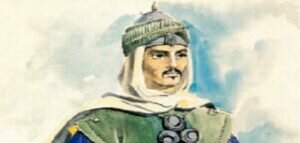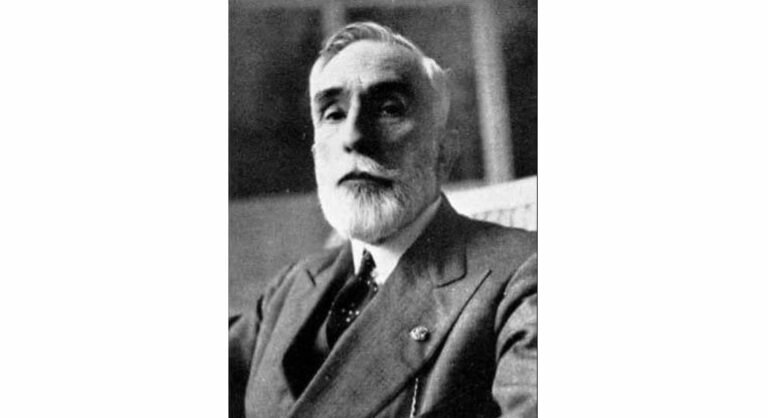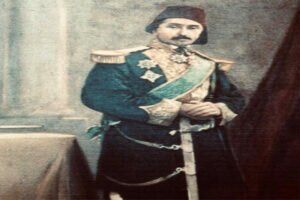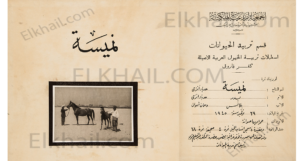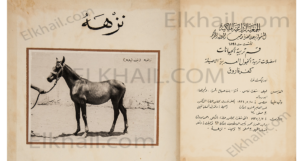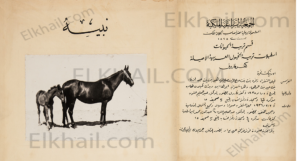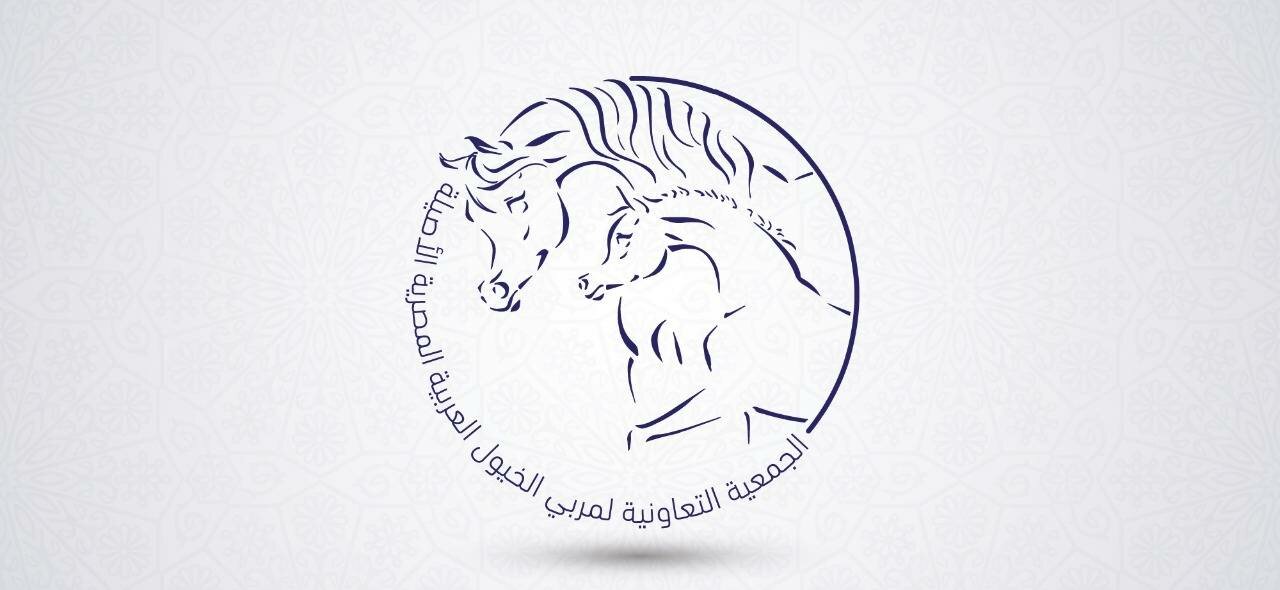
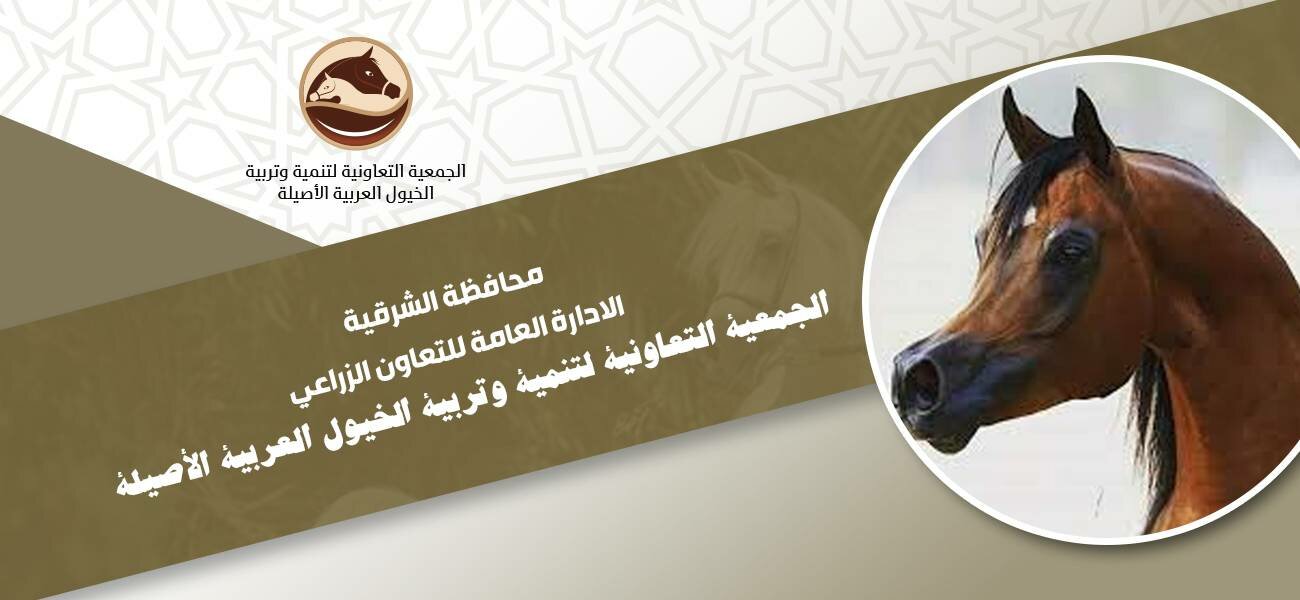
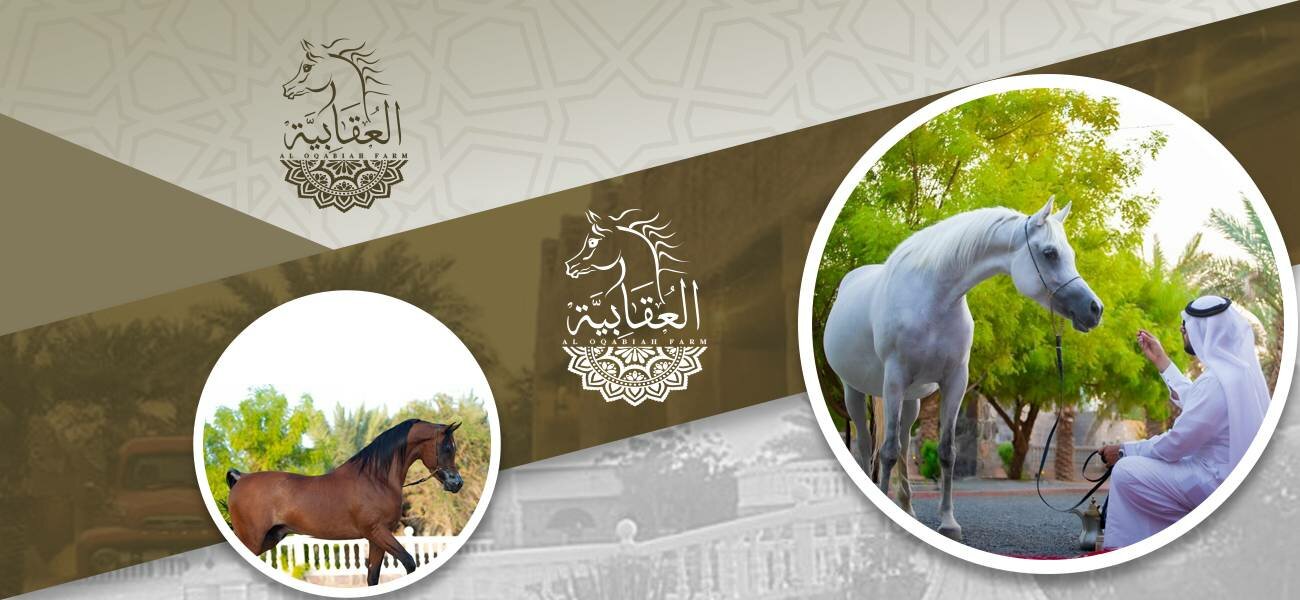

Latest News
Al-Khail website mourns Mr. Sharif Al-Azab, owner of Turath Al-Azab Farm, on the death of his mother
It is with great sadness that Al-Khail.com mourns the death of the mother of Mr.…

stables
Muhammed Ali Pasha decided to construct new large luxurious stables in the Shubra plain a short distance from his summer residence,…
The family farm was established in 2016, and holds No. 927 in the Egyptian Agricultural Authority. It was founded by Eng.…
Lady Ann Blunt and her husband founded Crabbet Park-Sussex – England in Sussex, England, and it was called Crabbet Park (Crabbet…
Director of the King Abdulaziz Center for Arabian Horses in Dirab: The Kingdom has managed to maintain the first position in horse production
الدكتور عبدالغني بن يوسف الفضل: السعودية الأعلي بالعالم في تنظيم بطولات الجمال.. وهناك توجه باعادة إعاشة الخيل في بيئاتها الطبيعية
Articles
Clot Bey’s certificate for the superiority of the Egyptian Arabian horse in the days of Muhammad Ali
Clot Bey wrote a very important historical testimony, which…


your Horse’s health
Early death from the first day of pregnancy until the age of 40 … and…
The secret of the foal’s strength in its first hours .. The respiratory rate, pulse…
Prince Muhammad Ali Tawfiq Nassib singled out Kabeer during the first part of his book…
تشتمل مرحلة الخصوبة والتوليد فى الأفراس، على عدة مراحل، تبدأ بدورة الشبق وتنتهى بعملية الولادة، حيث أن النشاط
التناسلى فى الخيل موسمياً، فيمتد موسم التناسل الطبيعى فى الأفراس من بداية الربيع إلى أخر الصيف
Events
Current Month
No Events
